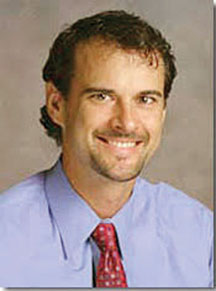Dr. Magryta: Safe drug use
Published 12:00 am Sunday, February 17, 2019

Dr. Magryta
Throughout my medical career there has been a mantra: “Kids are NOT just little adults”. What this meant was that physiologically children are very different from the adult versions of themselves. No where is this more true than in the realm of pharmacology, drugs. During my training years, my attending physicians were very careful to check dosages for all medicines because history had taught them that to fail at this task could cause a side effect that could be devastating.
In the Journal Pediatrics, Dr. Yin’s study looked at medication errors when the drug was given to children in a liquid form. They asked over 2000 parents to measure liquid medications using a syringe or a 30 ml cup. 84% made at least one error which was >20% deviation from prescribed dose. This was usually an overdose. 21% measured out 2X the amount as recommended on the drug label. They noted that dosing errors were 4.6X more likely with a 30 ml cup than with a syringe.
This study proves that a large portion of parents may be inadvertently giving their children dosages of medicines that are inappropriate and potentially harmful. I am especially worried about our ESL parents. We have a large Hispanic community with limited English language proficiency making this risk even more pronounced.
Example, simply mis-dosing the most common medicine tylenol/acetaminophen has significant negative consequences. Tylenol reduces the function of glutathione.This chemical is a potent antioxidant and is responsible for helping every cell in your body to rid itself of foreign chemicals and oxygen radicals that damage cellular organelles. Overdosing tylenol and messing with glutathione is a major problem in children and is the reason I avoid it altogether and encourage my patients to do the same.
In the Mehndiratta article we see three classic cases of drug dosing mistakes that could have been prevented. The dose concentration was changed and the parents were not informed that a concentration change had occurred. If the parent continues to administer the drug at the same dose with a new higher concentration, a bad outcome is on the way.
On the provider side, handwritten prescriptions are on the way out as 99% of our scripts are now electronically prescribed making legibility errors a thing of the past. Most pharmacists are excellent at double checking for allergies and other confounding risks for drugs. I can tell you without a doubt that having a high quality pharmacist is so important. I am a big fan of Neil’s Compounding pharmacy and Moose Pharmacy.
It seems to me that these issues may need to be settled in two places. First, at the pharmacy, please ask your pharmacist for instructions on how to effectively dose the medication that you are purchasing whether it is over the counter or prescribed. Make sure that you bring a syringe with you or purchase one so that the demonstration is on the device that you will be using. Second, ask your pediatrician to perform the same teaching event. Repetition is the key to any successful endeavor.
Keep this website handy for any dosing questions:
Safemedication.com
Ideas for safe dosing:
1) Always read the label and verify that the medication is the correct one that you were prescribed and it has not changed from the last prescription taken.
2) When you are in doubt at all, that is the time to call your pharmacist for verification of dosing and delivery.
3) Bring a syringe with you to your office visit and to the pharmacist as well to ascertain the correct dose.
4) I like the carpenter’s moto of measure three times and cut once. For the dosing moto should be: measure three times and give once.
5) Keep a list of all medications given and carry it with you to the office visit and the pharmacy visit to verify that all drugs and supplements play well together.
Remember that drugs are never benign entities and that children are at higher risk for a negative outcome based on their body size and metabolism. Be very meticulous in all actions related to drug use.
Be safe,
Dr. M
Dr. Chris Magryta is a physician at Salisbury Pediatric Associates. Contact him at newsletter@salisburypediatrics.com




